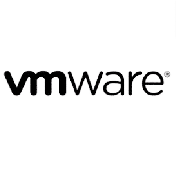Seminarinhalt
Course objectives
After completing this course, you should be able to:
- Describe HPE Alletra 6000 and HPE Alletra 5000 hardware, architecture, and software features
- List and compare HPE Alletra 6000 and HPE Alletra 5000 management options
- Describe HPE Alletra 6000 and HPE Alletra 5000 array initialization and Data Services Cloud Console onboarding
- Explain HPE Alletra 6000 and HPE Alletra 5000 provisioning terminology, features, and read/write operations flow
- Prepare and create hosts and initiator groups for HPE Alletra 6000 and HPE Alletra 5000 storage arrays
- Work with volumes, volume collections, and quality of service (QoS)
- Describe and manage snapshots, clones, and protection templates
- Describe the concept, use, and benefits of the HPE Alletra 6000 and HPE Alletra 5000 storage scale-out architectures
- Explain asynchronous remote replication concepts, implementation, and failure scenarios
- Describe peer persistence concepts, architecture, requirements, and the automatic switchover (ASO) process
- Describe HPE Alletra 6000 and HPE Alletra 5000 monitoring options and tools
- Describe the HPE Alletra 6000 and HPE Alletra 5000 OS update procedure
Programm
- HPE Alletra 6000 and HPE Alletra 5000 overview
- The architecture behind HPE Alletra 6000 and HPE Alletra 5000 systems
- PCIe expansion options
- Power supply unit details
- HPE Alletra 6000 and HPE Alletra 5000 series head shelf drive layout
- RAID options
- HPE Alletra expansion shelves
- HPE Alletra 6000 and HPE Alletra 5000 controller upgrades
Module 2: Management Options
- HPE Alletra 6000 and HPE Alletra 5000 manageability
- HPE GreenLake, Data Ops Manager, and Data Services Cloud Console
- HPE GreenLake Edge-to-Cloud Platform services
- HPE GreenLake dashboard
- Data Services Cloud Console overview
- Provisioning options
- Data Ops Manager dashboard
- Block Storage dashboard
- Intent-based provisioning
- Data Services Cloud Console REST API
- HPE Alletra 6000 and HPE Alletra 5000 web user interface (UI)
- HPE Alletra 6000 and HPE Alletra 5000 command line interface (CLI)
- HPE Alletra 6000 and HPE Alletra 5000 Rest API
Module 3: Initialization and Array Status
- Installation
- Documentation and resources
- End-to-end onboarding
- HPE Alletra 6000 and HPE Alletra 5000—preinstallation and software subscription
- HPE Storage Toolkit for Windows
- Setup Manager for HPE Alletra 6000, HPE Alletra 5000, and HPE Nimble arrays
- Discover the array
- Connect the array to the HPE GreenLake Edge-to-Cloud Platform
- Onboarding device to Data Service Cloud Console
- Data Service Cloud Console setup service
- Array initialization using the CLI
- Diagnostics setup and test
Module 4: Provisioning Terminology
- Industry-leading data protection and efficiency
- Read and write operations
- What is an NVDIMM?
- NVDIMM—how it works
- Resiliency and data integrity
- RAID options review
- Integrated spare: rebuild operation
- Integrated spare RAID: single drive failure scenario
- Integrated spare RAID: replacement drive rebuild process
- Quick RAID rebuild
- HPE Alletra 6000 and HPE Alletra 5000 data reduction
- Thin provisioning overview
- Space reclamation
- Inline dedupe in action
- What to deduplicate and compress
- Log structured file system design
- SmartSecure encryption
Module 5: Hosts and Initiator Groups
- Networking concepts and terminology
- Understanding Internet Protocol addresses (IPs)
- Discovery IP addresses
- Typical subnets
- Optimizing switch links: IP address zones
- Fibre channel components
- Initiator groups and access control
- Protocol connectivity options
- Obtaining Host Bus Adapter (HBA) World Wide Names (WWNs)
- Fibre channel zoning overview
- HPE Smart SAN for HPE Alletra 6000 and HPE Alletra 5000
- Fibre channel configuration using Target Driven Zoning (TDZ)
- Working with initiators from Data Ops Manager and Data Services Cloud Console
- Working with initiators from HPE Alletra 6000 and HPE Alletra 5000 user interfaces (UIs)
- Initiator groups
- Access control
- Working with initiators from the command line interface (CLI)
- HPE Storage Toolkit for Windows and HPE Connection Manager for Windows
Module 6: Volumes, Volume Collections, and QoS
- Volumes overview
- Thin provisioning
- Volume reserves
- Volume quotas
- Performance policies
- Workload-specific requirements
- Custom performance policies
- Application-aware storage
- Protection templates and volume collections
- Quality of Service (QoS)
- Monitoring volume limits
- Volume pinning
- Provisioning from Data Services Cloud Console
- Provisioning from HPE Alletra 6000 and HPE Alletra 5000 UIs
- Quick volume creation
- Create volume wizard
- Provisioning from the command line interface (CLI)
- Volumes and QoS, some CLI commands
Module 7: Protection Policies, Snapshots, and Clones
- Snapshots
- Understanding snapshots
- Anatomy of a snapshot: backup
- Understanding clones
- Managing from Data Ops Manager and Data Services Cloud Console
- Protection policy examples
- Managing from HPE Alletra 6000 and HPE Alletra 5000 UIs
- A manual snapshot
- Scheduled snapshot
- Schedules
- Managing from the command line interface (CLI)
- Protection templates
- Snapshots and clones
Module 8: Asynchronous Remote Replication
- Replication Introduction
- SmartReplicate (asynchronous replication)
- Replication use cases
- Replication components
- How replication works - the basics
- Volume collection and replication schedules
- Replication monitoring
- Replication QOS - bandwidth limit
- Replication considerations
- SmartReplicate disaster recovery (DR) – General DR operations – Replication concepts
- Promote
- Handover
- Demote
- Recovery scenarios
- Managing from Data Ops Manager and Data Services Cloud Console
- Replication using Data Services Cloud Console
- Block
- Creating and protecting volumes in block storage
- Protection policies available in Data Service Cloud Console
- Managing from HPE Alletra 6000 and HPE Alletra 5000 UIs
- Managing from the command line interface (CLI)
Module 9: Scale-Out
- Scale-to-fit: flexible and nondisruptive scalability
- Scale-out introduction
- Scale-out technology
- Overview of group/pool operations with new arrays
- Nondisruptive data migrations
- Spanned pools
- Volume creation
- Node addition
- Node evacuation
Module 10: Peer Persistence
- Peer Persistence: sync replication with auto-failover
- Peer Persistence overview
- Peer Persistence builds on scale-out group
- Peer Persistence Quorum Witness
- Peer Persistence customer benefits
- Peer Persistence architecture
- Basic terms
- Connectivity
- Performance
- Peer Persistence volume collection
- Peer Persistence snapshots
- Sync operations
- Automatic switchover (ASO)
- Peer persistence configuration using Data Ops Manager and Block Storage and Data Services Cloud Console
- Peer persistence configuration using HPE Alletra 6000 and HPE Alletra 5000 UIs
Module 11: Monitoring, Alerts, and Events
- HPE InfoSight
- HPE InfoSight Cross-Stack Analytics for VMware® environments
- Options available in Data Ops Manager and Data Services Cloud Console
- Options available in HPE Alletra 6000 and HPE Alletra 5000 UIs
- About SNMP
- SNMP support
- Syslog support
- Options available in the command line interface (CLI)
Module 12: Customer Self Update and Repair
- Data Ops Manager
- Intelligent upgrade paths
- Data Ops Manager OS upgrade
- Automatic software downloads
- One step software updates
- HPE Alletra 6000 and HPE Alletra 5000 UIs OS upgrades
- Command line interface (CLI) OS upgrades
- Customer self repair
- Repair controller
- Repair USB boot device
- Repair fan
- Repair drive
- Repair power supply
- Repair Small Form-factor Pluggable (SFP) module
Zielgruppen
Vorkenntnisse
- An understanding of general storage concepts including fiber channel, iSCSI technology and RAID
- Operator level functionality in a Windows environment



